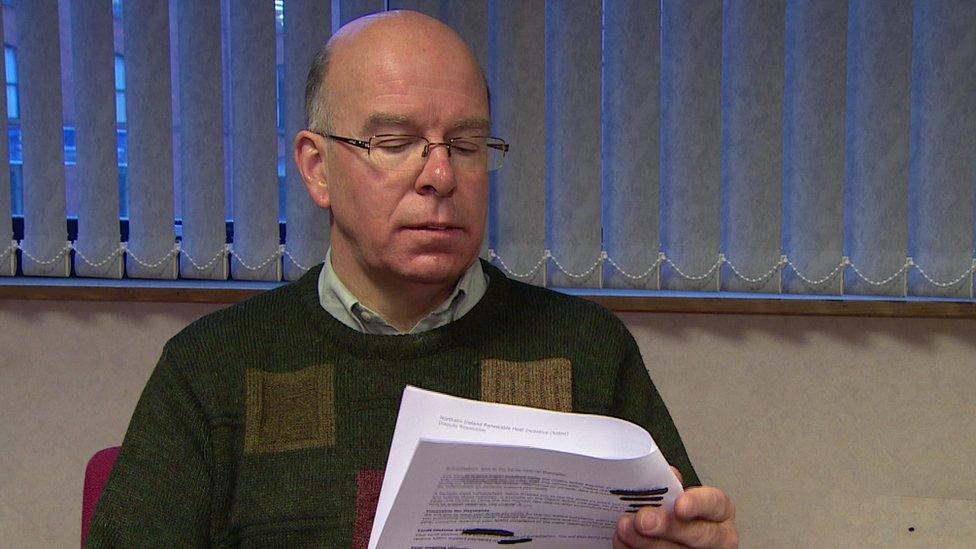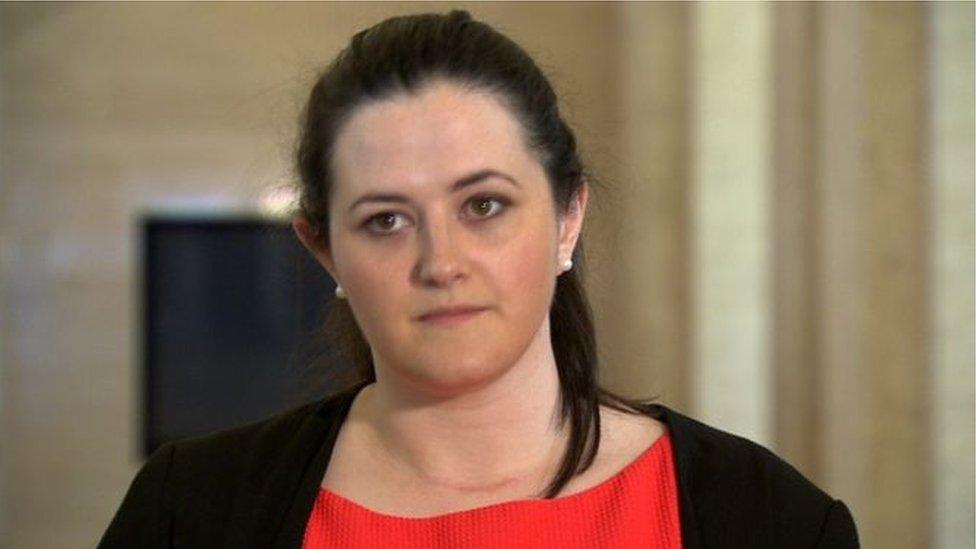RHI scandal: Hamilton 'in cloud cuckoo land'
- Published

Dr David Capper expressed concern about the plans to rescue some of the costs of the RHI scheme
The NI economy minister is in "cloud cuckoo land" if he believes a projected £490m overspend in a controversial renewable heating scheme could be reduced to zero, says the law professor who once taught him.
Dr David Capper lectures in contract law at Queen's University.
He expressed concern that Mr Hamilton's proposal for the recovery of RHI costs "has litigation written all over it".
"There will be a cost. A price will have to be paid," he told the BBC.
Dr Capper said he believed that any legislation to amend the scheme would have to include compensation and other protections for people who had availed of it.
He believed there was also the possibility of legal challenges.
Dr Capper added that fast-tracked legislation to rectify the problem is unlikely to work.

At present the RHI scheme is about £490m over budget
"Historically, the quicker legislation is drafted, the poorer the quality, because there's less time to reflect upon the problems that need to be addressed," he said.
"This is emergency legislation, but it's not like the kind that was passed between the two world wars when lives were at stake.
"It's only money that's at stake here, so they'd be well advised to take time to work out what problems need to be addressed and do it properly."

Dr Capper said "protections", such as compensation, would need to be incorporated into any proposed legislation
He explained that the letter sent to those who installed the boilers constitutes a contract between them and the government.
"What the executive is currently considering is passing legislation that would override those contracts.
"Effectively, they have introduced this Renewable Heating Incentive through statutory regulations and they want to revoke those regulations."
Although Dr Capper stressed that the executive is entitled to revoke regulation, he added that the European Convention on Human Rights contains provisions that would offer a level of protection to the boiler owners.
"The starting point is that if the contracts go, [the owners] don't have any rights to legal redress. However, the assembly does not have omnipotent power to pass whatever legislation it wants to pass.

The Queen's academic said boiler owners do have a level of protection under the European Convention on Human Rights
"The European Convention on Human Rights contains a key provision guaranteeing people's rights of property.
"But for the government, that article does contain a 'get-out' clause, whereby the state can regulate people's use of property in the general interest.
"Obviously, the DUP and others will be [pointing to] the fiscal chaos that would be caused by this scheme if it were not terminated.
"The very severe burden that would place upon the tax payer constitutes a general interest that would justify the revocation of these contracts."
However, Stormont have a duty in law to "act proportionately", he said: "The state can't take a sledgehammer to crack a nut.
"If the executive were to pass legislation that said this scheme is terminated and you just have to live with it, that's legislation that would struggle to survive judicial scrutiny."
'Litigation'
He said "protections", such as compensation, would need to be incorporated into any proposed legislation.
"The more detailed the legislation, the more likely it will be to survive judicial scrutiny.
"The aim of the executive will obviously be to try and pay a price that's less than the price they'd pay if the scheme was to continue for 20 years.
"But it would be a fool who would say this could never end up in court - this has litigation written all over it."
- Published6 January 2017

- Published5 January 2017

- Published5 January 2017
